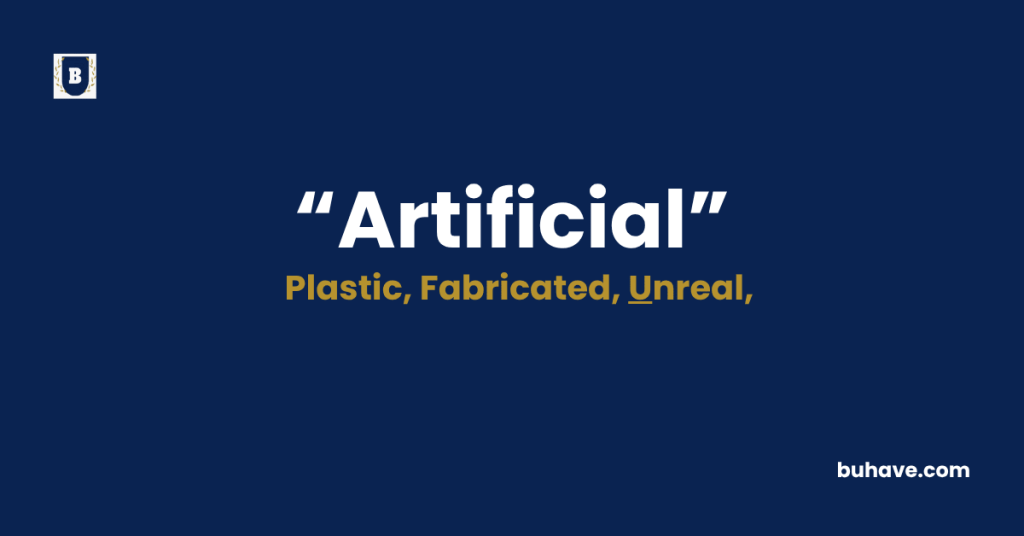The word Artificial (Adjective) refers to something made or produced by humans rather than occurring naturally. It can also describe behavior or emotions that seem insincere or contrived. In this guide, you’ll learn the full definition, synonyms, antonyms, etymology, and real-life examples of how to use Artificial correctly in sentences.
Artificial Explained in Depth
A complete and detailed guide to the word Artificial including meaning, definition, examples, etymology, synonyms, and antonyms.
Meanings of Artificial
It can apply to objects environments (like artificial lakes), or even human behavior (such as artificial smiles). The word can carry neutral, positive, or negative connotations depending on context.
Definition
Artificial describes anything created through human skill or intervention rather than occurring in the natural world. It often refers to items designed to imitate something found in nature, such as artificial light, flavor, or intelligence. In emotional or behavioral contexts, artificial may suggest a lack of sincerity or authenticity when someone behaves in a forced, overly polished, or insincere way. The term is also used in technology and science, especially in phrases like “artificial intelligence,” which refers to computer systems designed to mimic human thinking and decision-making. While artificial materials and environments can provide convenience, cost-effectiveness, or durability,
they are sometimes seen as inferior or less desirable compared to their natural counterparts. When used to describe people or emotions, it typically has a critical or disapproving tone.
Etymology
The word artificial comes from the Latin artificialis, meaning “made by art,” which stems from artificium—a combination of ars (art) and facere (to make). The original sense emphasized craftsmanship and skill in creating something. The word entered Middle English in the 14th century, where it retained that meaning. Over time, however, “artificial” began to carry both literal and figurative senses.
In modern usage, it typically contrasts with natural, especially in science, food, and emotional expression. While artificial can praise human ingenuity, it can also criticize lack of authenticity or naturalness in behavior, appearance, or product quality.
Example Sentences
- The room was lit with artificial light due to the lack of windows.
- She wore an artificial smile to hide her disappointment.
- Artificial intelligence is reshaping the way industries operate.
Artificial Synonyms
- Synthetic
- Imitation
- Fake
- Constructed
- Manufactured
- Engineered
- Fabricated
- Simulated
- Contrived
Artificial Antonyms
- Natural
- Genuine
- Authentic
- Real
- Organic
- Spontaneous
- Unforced
- Original
- True
- Uncontrived
FAQs about Artificial
Here are some frequently asked questions (FAQs) about the word “Artificial”
1. Is “artificial” always negative?
No, it depends on the context. Artificial can be practical or innovative in science and technology but may be negative when referring to insincerity.
2. What are examples of artificial items?
Common examples include artificial sweeteners, artificial grass, and artificial limbs.
3. How is “artificial” used in emotional context?
It describes behavior that appears fake or insincere, like an artificial smile or an artificial tone of voice.

















